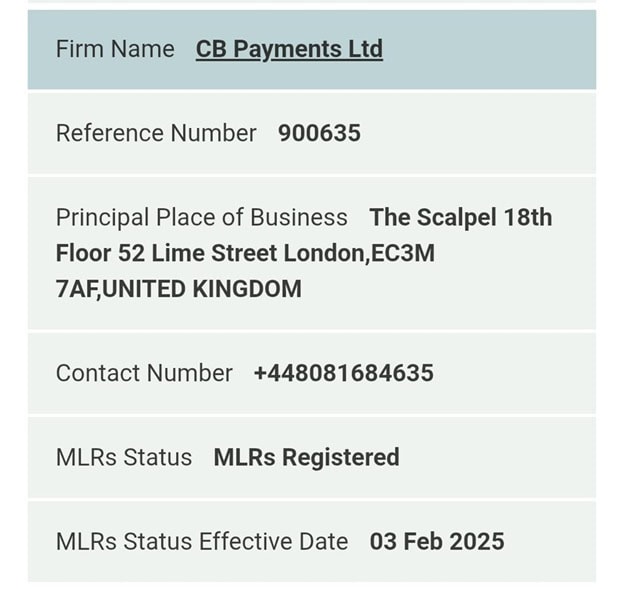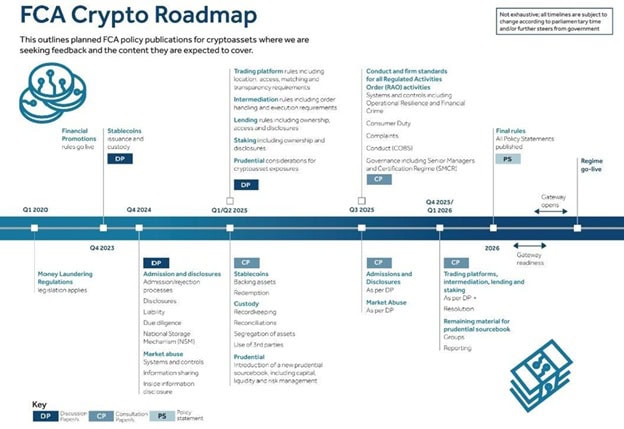Cryptocurrency use in the United Kingdom is rising fast. Recent Financial Conduct Authority (FCA) research shows that about 12 percent of UK adults now own cryptoassets, a 2 percent increase from 2022. Interestingly, UK-wide, this uptick is largely driven by England, which houses around 84 percent of the UK population. In the UK awareness is near-universal — over 90 percent — and ownership is skewing to younger, tech-savvy demographics.
Globally, the dominant age group is 25–34 — about 31 percent of crypto users — and UK surveys suggest most holders are under 45. Levels of education and income among UK crypto owners tend to be above average, reflecting early-adopter profiles, though the gap is closing as crypto becomes more mainstream.
Today’s piece is about how far cryptocurrency has come in the United Kingdom and where it is heading.
UK Leads Europe in Cryptocurrency Adoption
The UK leads Europe in crypto adoption. A pan-European survey in June this year found 23 percent of UK consumers had bought crypto at some point, versus 22 percent in the Netherlands. Currently, 19 percent of UK adults hold crypto assets, compared to 17 percent in the Netherlands.
By contrast, Switzerland, often cited as crypto-friendly, has about 11.5 percent of adults owning crypto. These figures suggest UK adoption is roughly on par or higher than other advanced European markets. The UK’s adoption rates also surpass the EU average.
Social and Tech Drivers of UK Crypto Growth
Tech and media exposure fuel growth in Great Britain and Northern Ireland. Over 80 percent of UK crypto-interested respondents cite “interest in learning”, “seeing others win big”, “FOMO”, or “social influence” as reasons to invest. About half see crypto adverts everywhere in sports sponsorships, such as Premier League matches. A third say friends/family or influencers encourage them to join in. At the same time, around one in four cites distrust of traditional finance or a desire for anonymity as a motivator.
In short, crypto interest in the UK is driven by a mix of tech enthusiasm, social buzz, and a dash of “don’t miss out” energy. This adoption is taking place in a population that already embraces fintech, that is, mobile banking, e-money apps, and online investing, which are mainstream in the UK.
London: The UK’s Cryptocurrency Innovation Hub
London is the UK’s crypto epicentre. As a global financial hub, it hosts most of the country’s startups and trading firms. BCB Group, for instance, provides payments and custody to Bitstamp, Gemini, and Crypto.com.

Likewise, platforms like Coinbase and Binance run UK branches from London, while the capital also draws blockchain meetups and conferences like the Digital Asset Conference founded by Nikita Fadeev. With the FCA and Bank of England headquartered close by, London remains a magnet for crypto ventures and funds.
Leading FCA-Compliant Crypto Platforms in the UK All major crypto exchanges and platforms serving British users emphasize FCA compliance. Coinbase UK, operating via CB Payments Ltd, gained FCA registration in February this year as a Virtual Asset Service Provider (VASP) — making the UK its largest market outside the US.
Binance operates via partners. Binance’s UK payments partner BNXA gained FCA registration in February 2024. Other global players like eToro (UK) and Revolut (UK) are regulated by the FCA to offer crypto trading. Even PayPal’s UK arm holds crypto registration.
Bitstamp, Copper, and London startups like R3, Quant, Komainu (backed by Nomura) and MoonPay have strong UK crypto operations. The regulation of apps such as Revolut, Binance, and Coinbase highlight FCA oversight. This ensures that UK users have regulated choices across custody, payments, exchanges, and wallets.
Institutional Crypto Investment Surges in the UK
Institutional interest in crypto is growing in the UK. In July, UK tech firm Asset Reality won FCA approval for crypto custody, marking a step toward institutional-grade services. BlackRock is working with regulators to list a crypto ETF on the London Stock Exchange (LSE), while the FCA aims to allow retail crypto exchange-traded notes (cETNs) by October 2025.
Recently, the London Stock Exchange Group (LSEG) launched its new Digital Markets Infrastructure (DMI) for private funds and completed its first live fundraise. In the meantime, Goldman Sachs and BNY Mellon rolled out “tokenized” money market funds using blockchain tech via GS DAP.
With custody approvals and the FCA’s planned full framework due by 2026, institutional funds looks set to flow.

Additionally, regulatory approval of crypto exchange-traded products (ETPs) for professionals, plus rising institutional demand, signals strong future growth once retail ETFs/ETPs are cleared.
UK’s Evolving Crypto Regulatory Framework
Post-Brexit, UK legislation has diverged from the EU, for instance in the case of MiCA (Markets in Crypto-Assets). Instead, it uses the Financial Services and Markets Act (FSMA) to add crypto into existing rules. In April, the Treasury’s draft “Cryptoassets Order 2025” classified tokens and stablecoins as regulated investments, requiring FCA authorization for platforms, custody, and issuance.
The FCA has been overseeing AML registration since January 2020, with only a few dozen firms approved by mid-2024. Since 8 October 2023, unapproved firms marketing to UK retail investors will be subject to criminal proceedings. In May and June 2025, FCA consultation papers (DP25/1, CP25/14/15) laid out proposals for platforms, custody, stablecoins, and prudential standards.
In essence, the UK’s approach is cautious but firm. It prioritizes anti-fraud, consumer protection, and governance, while preparing to allow crypto derivatives and funds under tight controls.
Why Cryptocurrency Adoption in the UK is Thriving
The UK’s crypto rise stems from high digital literacy, widespread fintech adoption, and the ease of shifting from mobile banking to crypto platforms. Inflation has also pushed savers toward diversification, with crypto pitched as an inflation hedge or “alternative asset” in a low-yield economy.
Social factors add fuel to this trend. Premier League sponsorships, peer buzz, and lingering mistrust of banks, for instance, boost crypto appeal. Crypto also fits the UK’s tech-startup culture, with younger generations drawn to its decentralized, global ethos.
All in all, backed by regulators now explicitly supporting innovation, crypto’s growth in the UK reflects a digitally focused population seeking new financial options. And more adoption seems to be underway.
Author: Ayanfe Fakunle
The editorial team at #DisruptionBanking has taken all precautions to ensure that no persons or organizations have been adversely affected or offered any sort of financial advice in this article. This article is most definitely not financial advice.
See Also:
Coinbase blocks trading for users in the UK. Why? | Disruption Banking
Quant’s Verdian Champions Programmable Money at IFGS2025 | Disruption Banking
R3, Solana Merge Blockchains for Internet Capital Markets | Disruption Banking
The Rise in Popularity of Cryptocurrency in Indonesia | Disruption Banking

















